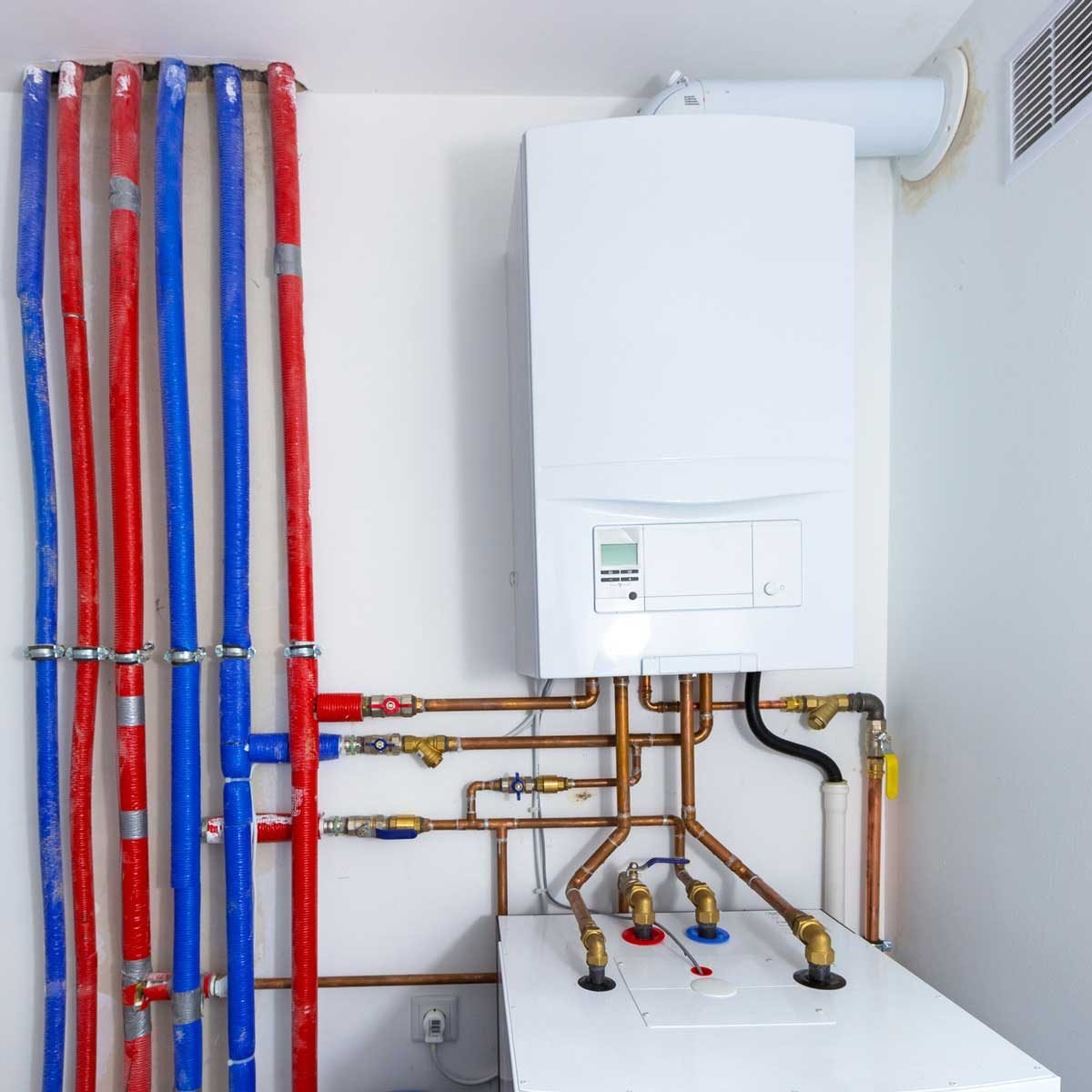Need a new boiler to heat your home? Discover what makes boilers unique and learn how to find the best one for your home.

How to Buy a New Boiler

While only about nine million homes in the U.S. are heated with boilers, about 85 percent of homes in the United Kingdom utilize this highly effective and efficient heat source. Whether you’re purchasing a boiler for the first time or replacing your existing one, it’s important to know what factors go into a wise purchase decision. Read on to learn what boilers are, how they differ from other heating methods, and how to choose the best boiler for your home.
On This Page
What Is a Boiler?
A boiler is a central heating appliance that heats water in a tank (much like a conventional water heater) and distributes it through a series of pipes to various radiators throughout your home.
Depending on the boiler, it will either heat the water until it becomes steam (a steam boiler) or keep the water in its liquid state (a hot water boiler). Either can be powered by several fuel sources, including natural gas, propane, heating oil or electricity, with comparable levels of energy efficiency. If you are replacing a boiler, you must choose the same type as the original because the radiators are designed specifically for steam or hot water.
Differences Between Boilers and Other Heating Options
Furnaces are the most common central heating source in the U.S., spreading their heat by forcing warm air through a system of ductwork. They are usually part of a home’s comprehensive heating, ventilation and air conditioning (HVAC) system, and share ductwork with an air conditioning system for year-round climate control.
Boilers are only capable of generating heat. Their inability to bring cool air during the summer months makes them less popular in the hottest regions of the U.S. Boilers are also usually more expensive. A furnace may cost $700 to $2,000 to purchase and $2,500 to $6,000 to install, while a boiler can run $3,500 to $8,000 to purchase and $3,500 to $10,000 to install.
That said, boilers offer several advantages over furnaces:
- Take up less space;
- Are more energy-efficient;
- Heat more efficiently;
- Require less maintenance;
- Quieter operation.
For these reasons, boilers are sometimes the central heating system of choice in colder regions where efficient heat is the primary concern and central air conditioning isn’t necessary.
What Are the Energy Efficiency Ratings for Boilers?
A boiler’s energy efficiency is rated with an “annual fuel-utilization-efficiency” (AFUE) score, which stands for and indicates the percentage of energy the boiler converts into heat. By federal law, a new boiler is required to have at least an 80 percent AFUE rating, but old boilers may have an AFUE rating between 56 percent and 70 percent.
High-efficiency boilers can have an AFUE score as high as 98.5 percent, and are often Energy Star certified. A high-efficiency boiler will usually come with a higher price tag, but will save you money in the long run through a smaller utility bill.
What Are the Key Features for Boilers?
- Condensing. One of the key differences is whether they’re “condensing” or “non-condensing” units. Non-condensing boilers used to be the only type available. They expelled incredibly hot (around 400 degrees F) exhaust gases out of their ventilation chimney, resulting in a large amount of lost heat energy and reduced energy efficiency. Newer condensing boilers capture most of that heat energy otherwise lost through ventilation, which can make them 10 to 12 percent more energy efficient.
- Closed/Sealed Combustion. Another key difference is whether they are sealed (or “open”) or non-sealed (“closed”) combustion units. Non-sealed combustion boilers use the air in the room to fuel the burner’s combustion process, while sealed combustion boilers use outside air for combustion fuel. Sealed combustion boilers are more energy-efficient and present a lower risk of introducing carbon monoxide (CO) into your home, making them the preferred choice for most homeowners.
How to Choose the Best Boiler
Generally speaking, the best boilers are sealed combustion condensing boilers that offer the highest level of energy-efficiency. However, these units are the most expensive. You should weigh the upfront cost of the unit against the long-term savings on your utility bill to determine if it offers a cost-effective solution for your home.
Finding the right-sized boiler for your home will also impact its energy-efficiency and overall function. An undersized boiler will work too hard to run efficiently, while an oversized boiler will consume more energy than necessary to heat your home. There are several factors that go into sizing a boiler, like insulation values, wall thickness, door and window seals, type and quality of the home’s foundation, etc. Recruiting a heating and cooling professional is usually required to make an accurate sizing calculation.




















